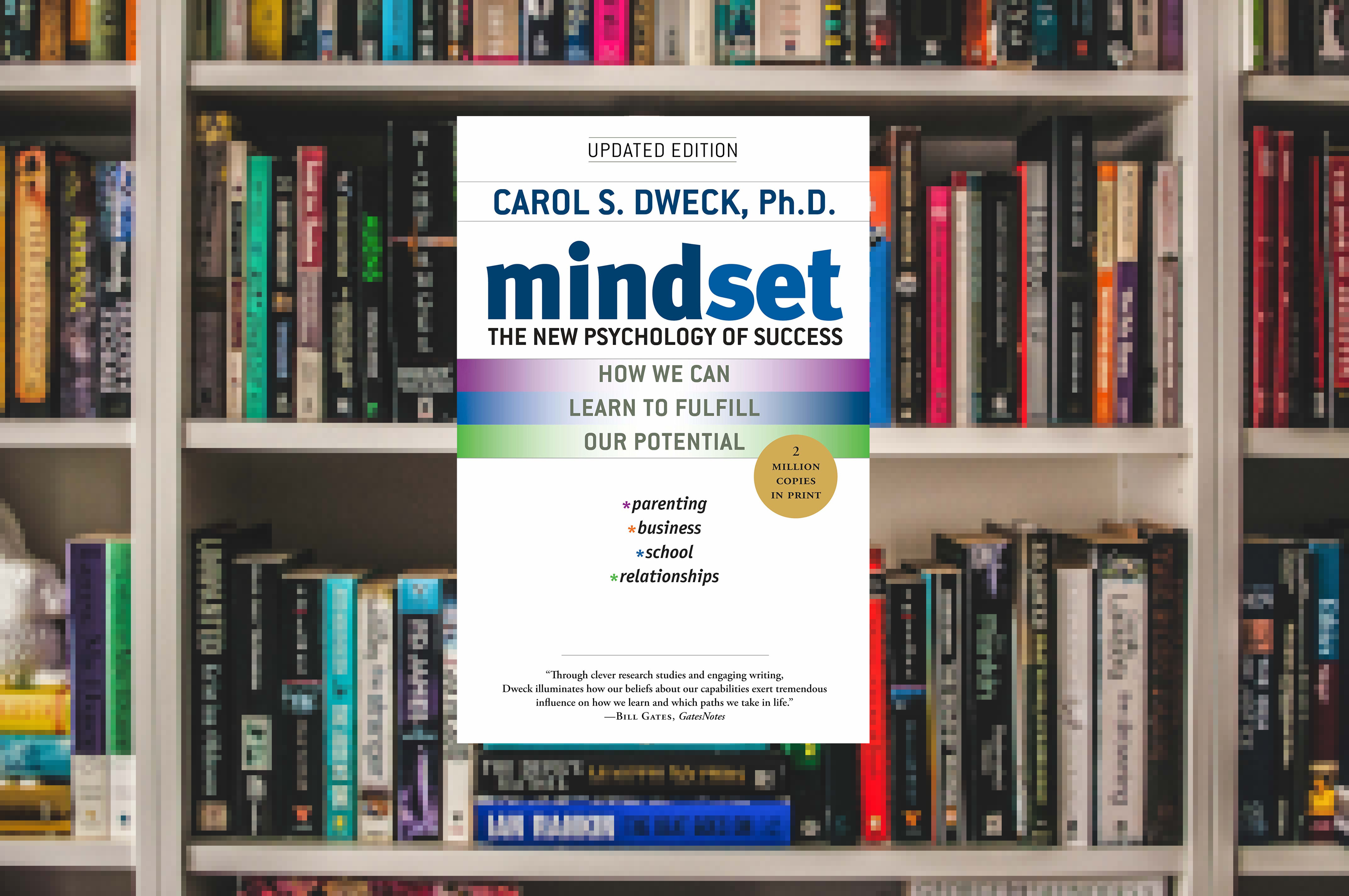
Unlock Your Full Potential with a Growth Mindset
Have you ever heard the phrase, "I'm just not good at math"? Or, "I'm not a natural writer, so I'll never be successful in that field"? These statements reflect a fixed mindset, the belief that our abilities and talents are fixed and cannot be changed. But what if there was another way to think about our abilities and potential for success?
Enter Carol Dweck and her groundbreaking work on mindsets. In her book "Mindset", Dweck, a Stanford University psychologist and world-renowned expert on motivation and achievement, explores the concept of mindset and how it can impact our learning, growth, and success. Through her research, Dweck has found that the key to unlocking our full potential and achieving our goals lies in adopting a growth mindset, the belief that our abilities can be developed and improved through effort and learning.
In this blog post, we will dive into the concepts of fixed and growth mindsets and explore how they can shape our lives. We will examine the research on the relationship between mindset and success and discuss strategies for developing a growth mindset. By the end of this post, you will have a deeper understanding of the power of mindset and how you can harness it to reach your full potential.
The Power of Mindset: Fixed vs. Growth
At the heart of Carol Dweck's work on mindsets is the distinction between a fixed mindset and a growth mindset. A fixed mindset is the belief that our abilities, intelligence, and talents are fixed and cannot be changed. This mindset can lead us to view challenges and setbacks as threats to our self-worth and to avoid situations that might reveal our limitations. On the other hand, a growth mindset is the belief that our abilities can be developed and improved through effort and learning. This mindset encourages us to embrace challenges, seek feedback, and learn from our mistakes.
Let's take a closer look at each of these mindsets and how they can impact our behavior and performance.
A fixed mindset is characterized by the belief that our abilities are fixed and cannot be changed. This mindset can lead us to avoid challenges and to focus on proving our abilities rather than improving them. For example, a person with a fixed mindset might be hesitant to try a new task or activity because they fear failure or the possibility of revealing their limitations. They may also be more likely to give up in the face of setbacks or challenges because they see them as a threat to their self-worth.
On the other hand, a growth mindset is characterized by the belief that our abilities can be developed and improved through effort and learning. This mindset encourages us to embrace challenges and to view setbacks as opportunities for growth and learning. For example, a person with a growth mindset might be more likely to try new things and take on challenges because they see them as opportunities to learn and grow. They may also be more open to seeking feedback and using it to improve their skills and abilities.
It's important to note that everyone has a mix of fixed and growth mindsets, and the balance can shift depending on the situation. However, research has shown that adopting a growth mindset can have a powerful impact on our learning, achievement, and overall well-being. In the next section, we will explore the research on the relationship between mindset and success and discuss the benefits of a growth mindset.
Mindset and Success: How Your Thinking Impacts Your Results
Carol Dweck's research on mindsets has shown that our mindset can have a significant impact on our learning and achievement in various areas of life. In her book "Mindset", Dweck provides numerous examples of the ways in which a fixed mindset can hold us back, while a growth mindset can help us reach our full potential.
For instance, in the education context, students with a fixed mindset may avoid challenging tasks or shy away from asking for help because they fear looking "dumb". They may also give up easily when faced with a difficult problem, believing that their ability to solve it is fixed and cannot be improved. On the other hand, students with a growth mindset may be more willing to take on challenging tasks and seek help when needed, viewing these experiences as opportunities to learn and grow. Studies have shown that students with a growth mindset tend to have better grades, higher test scores, and a more positive attitude towards learning.
The impact of mindset on success extends beyond the classroom as well. In the workplace, individuals with a fixed mindset may be less likely to seek out new challenges or take on tasks outside their comfort zone, fearing that they will reveal their limitations. They may also be less receptive to feedback, viewing it as a personal attack rather than an opportunity to learn and improve. On the other hand, individuals with a growth mindset may be more likely to embrace challenges, seek feedback, and view setbacks as opportunities to learn and grow. This can lead to greater success and advancement in their career.
In our personal lives, mindset can also play a role in our relationships and overall well-being. For example, people with a fixed mindset may be more likely to give up on a relationship at the first sign of conflict or difficulty, believing that their ability to love and be loved is fixed and cannot change. On the other hand, people with a growth mindset may be more willing to work through challenges and seek out ways to improve their relationships, viewing these experiences as opportunities for growth and learning.
Overall, the research on mindsets suggests that a growth mindset can lead to greater learning, achievement, and well-being in various areas of life. In the next section, we will discuss strategies for developing a growth mindset and how you can harness the power of mindset to reach your full potential.
Cultivating a Growth Mindset: Tips and Strategies
So, we've established that a growth mindset can have a positive impact on our learning, achievement, and overall well-being. But how can we cultivate a growth mindset and reap its benefits? Here are some strategies for developing a growth mindset:
Reframe negative thoughts: One of the key ways to develop a growth mindset is to challenge and reframe negative thoughts that reflect a fixed mindset. For example, instead of saying, "I'm not good at math", try saying, "I'm not good at math yet, but I'm willing to put in the effort to improve". This simple shift in language can help you view challenges as opportunities for growth rather than threats to your self-worth.
Embrace challenges: Another important strategy for developing a growth mindset is to embrace challenges rather than avoiding them. This means taking on tasks that are outside your comfort zone and viewing them as opportunities to learn and grow. Remember, challenges are a natural part of the learning and growth process, and they can help you stretch and develop your abilities.
Seek feedback: Feedback is an essential part of the learning and growth process, and it's important to seek it out in order to improve. However, it's also important to approach feedback with a growth mindset. Rather than viewing it as a personal attack, try to see it as an opportunity to learn and grow. Be open to hearing different perspectives and consider how you can use the feedback to improve.
Practice gratitude: Gratitude is a powerful mindset that can help us focus on the positives in our lives and cultivate a growth mindset. Try keeping a gratitude journal or regularly expressing gratitude to others. This can help you cultivate a more positive and growth-oriented perspective.
Learn from setbacks: Finally, it's important to view setbacks and failures as opportunities to learn and grow, rather than as personal failures. When you encounter a setback, try to identify what you can learn from the experience and how you can use it to improve in the future.
By adopting these strategies, you can start to develop a growth mindset and unlock your full potential. Remember, developing a growth mindset is a process and it takes time and effort, but the benefits are well worth it.
Start Your Growth Mindset Journey Today
In this post, we've explored the concept of mindset and how it can impact our learning, growth, and success. We've examined the difference between a fixed mindset and a growth mindset, and we've discussed the research on the relationship between mindset and success. We've also discussed strategies for developing a growth mindset, including reframing negative thoughts, embracing challenges, seeking feedback, practicing gratitude, and learning from setbacks.
It's clear that mindset plays a significant role in our lives and that adopting a growth mindset can have a powerful impact on our learning, achievement, and overall well-being. If you're interested in learning more about mindsets and how you can cultivate a growth mindset in your own life, we highly recommend Carol Dweck's book "Mindset". This groundbreaking work provides a deep dive into the concept of mindset and offers practical strategies for developing a growth mindset and reaching your full potential.
We hope this blog post has given you a deeper understanding of the power of mindset and how you can harness it to reach your goals and achieve success. Remember, a growth mindset is a choice and it's never too late to adopt one. With effort and dedication, you can develop a growth mindset and unlock your full potential.
